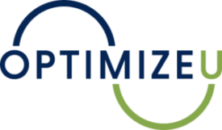Reframing Overwhelm When the Learning Curve is Steep
Advancing in your career means regularly stepping into new roles without the skill or knowledge to do the job. In other words, getting comfortable being uncomfortable. Ask yourself, how willing are you to accept a new challenge when you know the learning curve will be steep? It’s natural for feelings of overwhelm and fear of failure to hold us back. Reframing this thinking can give us the courage to persevere. Think about the last time you jumped into something you perceived as “difficult.” What was it that helped you make the decision to move forward? In my case, I learned something years ago that was a game changer for me.
Early in my career, I was working as an executive recruiter. It was my first sales job, and it was all new to me. There was lots of cold calling and business development from the ground up. Bottom line – it was tough. My boss back then sensed my struggle and wisely shared the four stages of competence with me to normalize what I was going through and help me understand how my learning would unfold:
Stage 1 – Unconscious incompetence: I think of this as the “deer in headlights” stage. At this stage, not only do we not know how to do something, we are unaware of how much we don’t know. When I began my work as a recruiter, I knew I was clueless, but I didn’t realize how completely clueless I really was. As I gained some hands-on experience and faced some failures, my knowledge and skill began to grow.
To successfully navigate this stage, we need to recognize our own incompetence and simultaneously not judge ourselves too harshly for it. It’s a normal part of starting a new job or learning a skill that everyone — even the most successful among us — has to go through. At the same time, it’s important to remind ourselves that even when we are new to the job, we are likely still adding value.
Stage 2 – Conscious incompetence: The more we know, the more we realize we don’t know. Making mistakes is the natural by-product of learning at this stage. This helps us to identify learning opportunities and recognize the value of developing even more skills. We can stay energized through our missteps by reframing mistakes as integral to the learning process. To relate this back to my recruiting experience, at this point I had a heightened awareness of how much there was to learn. Through an after-action-review process, I internalized the concepts and was ready to move on to the next level of competency.
Stage 3 – Conscious competence: At this stage, we understand how to do something, but we still need to be focused and very consciously engaged in order to execute well. In my experience, I remember having a growing awareness about my proficiency in some areas that had previously seemed challenging. I was still rather scripted in my approach, a little more in my head, and anxious about getting it right rather than being fully present, but my confidence was growing.
Stage 4 – Unconscious competence: By this point, we have had so much practice with a skill that it has become second nature and we can do it easily. We might even be able to teach others some of what we have learned. For me, in this unconscious competence stage, things began to flow much more readily, and I had moments of feeling like things were “suddenly” going well. The truth is, the seeds of effort planted all along the way were finally paying off.
Sometimes when we’re learning something new, we’re moving through these stages of competence and something gets in our way. We begin to doubt our abilities and wonder if we’re on the right track. The truth is, learning curves are real and we all go through them. What if the struggle has nothing to do with your ability and only reflects where you are in the learning process? Not where you’ll end up, but just your current experience? How can you practice self-compassion and be patient with yourself? Trust the process and persevere. If you really want it, you’ll find your way to unconscious competence. You’re on your way. Stay the course.



Leave A Comment